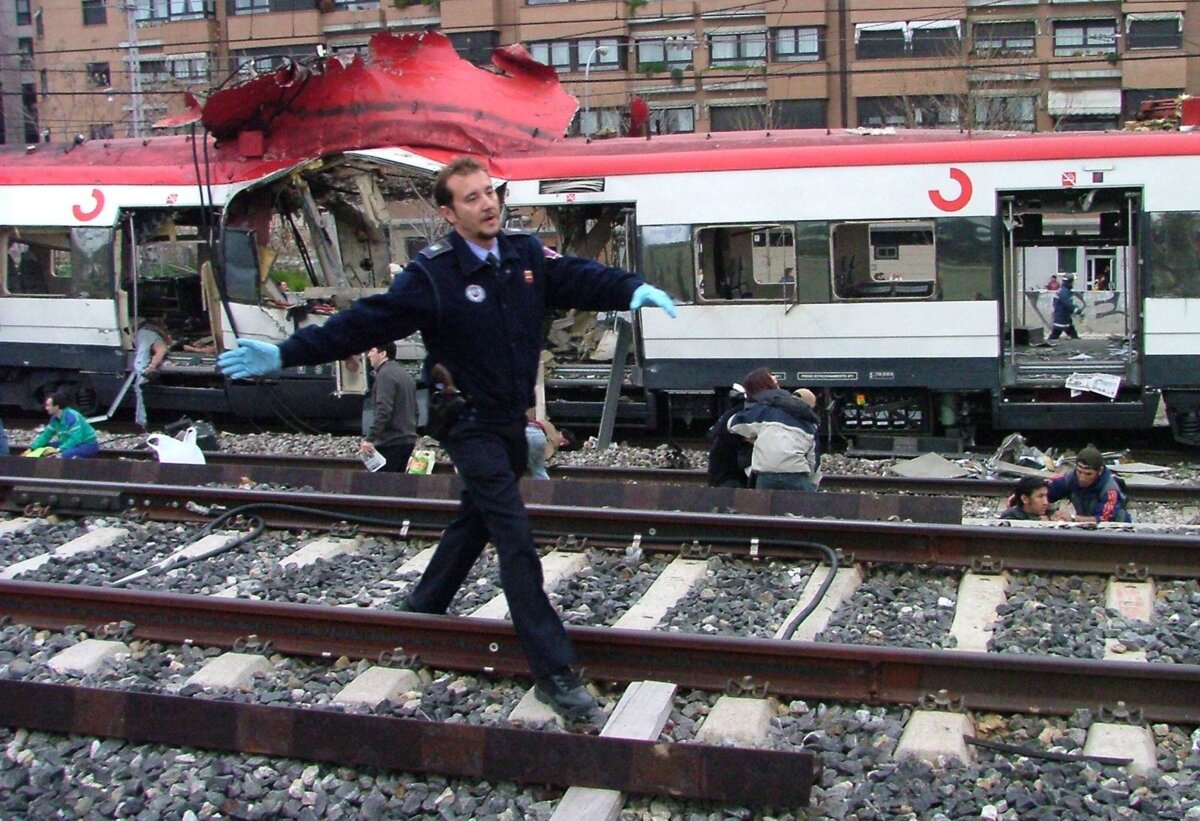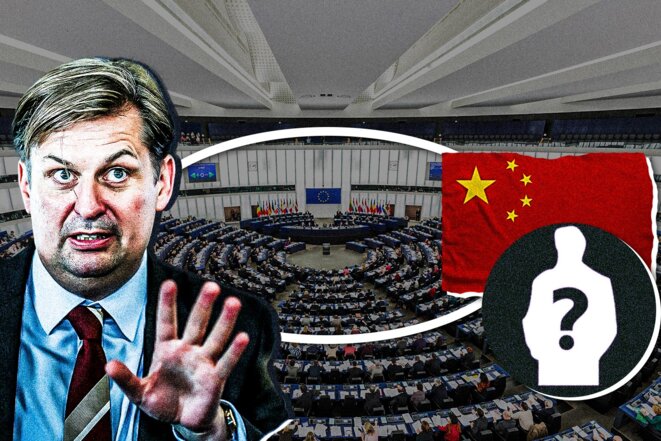Shortly after a visit to Spain in December 2013 by the FBI’s second chairman James Comey Jr., the US embassy in Madrid issued a fact sheet entitled 'U.S. and Spain Law Enforcement Cooperation'. “U.S. and Spanish information sharing has led to the disruption of multiple terrorist operations planned on U.S. and Spanish soil,” it read. “For example, for six months in 2012, Spanish and FBI officials partnered on the investigation and eventual arrests of Muhammad Adamov, Eldar Magomedov, and Cengiz Yalcin in connection with an Al Qaeda plot. Critical information flow between the U.S. and Spainish [sic] governments led to their arrests and thwarted Al Qaeda’s plan to use remote-controlled aircraft to deliver explosives in Spain and Europe.”
But the report omitted to mention that the case against Chechen nationals Adamov and Magomedov, and Turkish national Yalcin, had been dropped in March 2013 by a Spanish judge because of lack of evidence against the men. They were arrested in a Spanish police operation codenamed ‘Operation Lead’, named after the heavy metal, which was launched after Magomedov had been denounced as being involved in terrorist activity by a prisoner held in a secret US detention centre situated outside of mainland America.
Spanish investigating magistrate Pablo Ruz, in charge of the case, had on three occasions requested a video of the testimony from the US Defence Department and also to be able to question the witness either in Spain or via videoconference. Having never received a positive reply to his requests, Judge Ruz closed the Spanish investigation file on March 21st 2013, and withdrew the charges against Adamov, Magomedov and Yalcin.
They were then freed after serving nine months of preventive detention in a Spanish prison where they had been kept in solitary confinement. Adamov and Magomedov were subsequently deported to Russia. Yalcin has since remained in Spain, where he has now launched a lawsuit against the police for unlawful arrest, torture, falsification of evidence and sequestration.
In the ten years following the March 11th 2004 terrorist bomb attacks against four commuter trains in Madrid, which left 191 people dead and 1,841 injured, more than 500 people have been arrested in Spain on suspicion of involvement in Islamic terrorism. Just 50 of these were sent for trial and found guilty of terrorist-related charges – most of them for belonging to a terrorist organization - according to research by Spain’s Elcano Royal Institute, an independent body for the study of international affairs.
As for the hundreds of others who spent months and even years behind bars before finally being freed, the majority were deported.

Enlargement : Illustration 1

“It’s quite simple, the option for early intervention was taken,” commented Judge Javier Gómez Bermúdez of the Audiencia Nacional, Spain’s top criminal court, and who led the trials of those charged for the March 2004 train bombings in Madrid. “Faced with the risk of a terrorist attack, the police, I believe in a wise manner, decide to make a rapid arrest. As a result, the elements of proof obtained are very weak, almost inexistent. Which explains why there are few convictions. On the other hand, we haven’t had any attacks for ten years.”
For Judge Ramón Sáez, also from the Audiencia Nacional court, preventive arrests were made “not as a result of concretely identifiable facts, as demanded by criminal law, but because of the danger that the suspects represented, according to the state’s criminal procedure system.” He argued that the fact that a large number of police investigations were eventually closed for lack of proof of criminal activity “appears salutary for the functioning of a state of law”.
Manuel Cancio, a professor of law with the Autonomous University of Madrid, underlined that modern criminal law in Spain has changed over the past 30 years. “We have moved from a retrospective judicial system, which was aimed at judging past events, to a system that must not only continue to punish those who are guilty but also to prevent the carrying out of other crimes.”
Judge Sáez described such preventive arrests as a method “borrowed” from wartime actions and espionage services, and said they are “in contradiction with the rules of criminal law” which require a fact as proof of a crime. “There you have the problem that is raised with crimes of belonging to, and collaborating with, a terrorist organization or group,” he added.
On January 18th 2008, 11 people, mostly of Pakistani nationality, were arrested in Spain on charges of preparing a terrorist attack on the Barcelona subway system. The arrests were carried out in a police operation codenamed ‘Operation Cantata’. Despite the gravity of the charges, no convincing evidence against them was produced at their subsequent trial, save for 18 grammes of explosive powder for use in fireworks that were found in their possession. However, they were denounced as terrorists by a witness presented to the court as a former member of the alleged terrorist cell they belonged to, and all 11 were subsequently convicted of the charges and handed jail sentences. Nine were released in January after completing six-year jail sentences, while another two are still serving time.
Even the special anti-terrorist public prosecutor assigned to the case, Vicente González-Mota, agreed that the evidence against them was poor, according to a report by The New York Times. A conversation between him and US diplomats was detailed in a confidential cable addressed to the CIA and FBI by the US embassy in Madrid on December 2nd 2008, and which has now been revealed by the whistleblowing site Wikileaks. “Although he stated his unequivocal belief that those arrested in Operation Cantata are guilty,” the cable report reads, “Gonzalez Mota predicted that they will go to trial in 2009, will have an appellate hearing in 2010, and some may be released in 2011, which he argued "is not bad" because it will have served to keep those radicals off the Spanish streets for three years or more.”
A 2010 report by the Spanish public prosecutor’s office noted that “The importance of the criminal law and prevention policies aimed at avoiding terrorist acts is under no doubt”. It underlined the importance also of two criminal charges “which form the backbone of the early response against terrorism: that of integration within a terrorist organization, and that of collaborating with these same groups”.
In private, the public prosecutor’s office admits that there was a huge number of arrests made following the 2004 Madrid train bombings, but that since these have become fewer over recent years they have also become more effective, with a higher ratio of convictions. In 2004, 138 people were arrested on terrorist charges, falling to 131 in 2005 and just nine in 2012.
A later yearly report by the public prosecutor’s office noted “the high number of acquittals” since 2011, “clearly indicating the enormous legal difficulties raised in these trials regarding the proof of certain crimes, particularly in the framework of the preventive response of criminal law against terrorist cells. In numerous cases, convictions are made not for terrorist crimes but for common crimes.”
One of the first building blocks of the edifice of ‘preventive justice’ was laid in France in 1986, with the passing of a law that made it a crime for a person to be in ‘association with criminals with the aim of committing terrorist acts’. In her 2002 book recounting her experiences as head of an anti-terrorist department of the Paris public prosecutor’s office (Procureur à la 14e section, published in France by Michel Lafon), Irène Stoller wrote: “Our judicial system is based on the presumption of guilt and not the presumption of innocence.” Stoller argued that the 1986 law was a crucial tool. “That allowed us, with the help of the police and intelligence services, to intervene before terrorist acts, even before groups had put their logistics into plac,.” she wrote, adding: “The most important thing is not to punish terrorist crimes, but to avoid them.”
Rogelio Alonso, a political sciences professor with King Juan Carlos University and a former advisor to the Spanish interior ministry, wrote an opinion article published in Spanish daily ABC in which he called for a debate over whether those arrested on terrorist charges should be presumed guilty until they can prove their innocence, rather than innocent until proven guilty. Judge Bermúdez dismissed this suggestion as “absurd” from a point of view of criminal law. “Every person is innocent until it is proven that they are guilty,” he said. “Otherwise, I would accuse you of being a terrorist, I’d put you in jail and you would have no means to prove that you’re not. It’s diabolical. The rights and guarantees protect the honest man, not the delinquent. It shelters him from two things, judicial errors and arbitrary [justice].”
'We must review police and judicial practices'
Since the September 11th 2001 terrorist attacks in the US, many police forces around the world use statistical models to analyse data bases, including mass surveillance of private use of the internet (such as email correspondence, web pages visited and online purchases). Just a small number of caricatures can produce the profile of a terrorist suspect.
Over the past ten years, lawyer Jacobo Teijelo has represented numerous clients charged or sentenced for terrorist acts, including Abu Dahdah, a Syrian-born Spaniard sentenced to 27 years in jail – later reduced on appeal - for his part in the September 2001 attacks in the US, and also several of the 11 Pakistanis arrested in Barcelona in 2008. “Before, when someone was murdered we’d look for an assassin. Now, using statistical models and risk profiles, we decide who is the assassin and then look for the corpse,” Teijelo said. “That might look the same but it is not the same thing. Individual liberties are in danger. The prospective system, which consists of looking at the possibility that someone might commit a crime in the future, is expressly prohibited by our laws. One must investigate concrete events, not people.”
Abu Omar al-Kurdi was captured in Iraq in January 2005. He was wanted for a series of bombings in the country for which al-Qaeda had claimed responsibility, and was described by the Iraqi authorities as the “most lethal” ally of Abu Musab al-Zarqawi. After his capture, he was at first held for interrogation in a US military prison in Iraq. According to the then interim Iraqi government justice ministry, Abu Omar al-Kurdi confessed to the 2003 killing of Ayatollah Muhammad Bakr al-Hakim, one of Iraq’s most prominent Shiite leaders, and to involvement in a suicide bombing that killed 19 Italian service members in Nasiriya in November 2003, and the May 2004 killing of Abdel Zahara Othman, then the head of Iraq’s Governing Council. In the video below, Italian prosecutors in Rome question al-Kurdi via a videoconference about the Nasiriya bombing. At the time, he was held in the Camp Cropper US jail in Iraq.
When he was later handed over to the Iraqi authorities, he was sentenced to death and executed in July 2007.
Video extract above: Abu Omar al-Kurdi is questioned via a videolink by Italian public prosecutors. The video was obtained by Spanish public prosecutor Dolores Delgado in the 'Operation Tigris' case, but was later ruled to be unlawful evidence.
Abu Omar al-Kurdi’s testimony was also of interest to Spanish public prosecutor Dolores Delgado who was assigned the case of 14 people charged with running a Jihadist network in Spain which recruited volunteers to fight in Iraq. They were arrested as part of a Spanish police operation codenamed ‘Operation Tigris’(see the US Madrid embassy cable about the case). However, Spanish judges were to rule that Abu Omar al-Kurdi’s testimony was inadmissible because the place where it had been obtained was “a place outside of the law, on the margins of international legality”. Meanwhile, ten of the 14 were finally acquitted in May 2007 after judges ruled that email evidence produced against them had been illegally obtained by police.
A decade after the Madrid train bombings, there are conflicting views about the success of the judicial system’s fight against terrorism. “The success is to have been able to fight it with a maximum number of guarantees [and] without the slightest suspicion of partiality, discrimination or prejudice, and with the absolute respect for human rights,” said Judge Javier Gómez Bermúdez. But for Judge Ramón Sáez, “there must be reflection about the adopted legislations, the police and judicial practices, to examine not only their effectiveness but also to look at the existence of exceptions that are not compatible with a state of law”.
Meanwhile, Cengiz Yalcin, freed by Judge Ruz last year along with Muhammad Adamov and Eldar Magomedov after nine months in preventive detention on terrorist charges, will forever vividly remember the phone call he received on August 1st 2012. He was in his office in the British territory of Gibralter, where he worked since 2008 as a foreman for the construction firm Profield. The caller said he was from the Spanish customs office at La Línea, the Spanish border town that leads into Gibralter, and told him that billing documents were ready for him to pick up. It was normal practice, as part of his job, for Yalcin to collect such documents.
Three months earlier, in May 2012, the Spanish police were alerted by British and French intelligence services that a leading member of al-Qaeda resided in La Línea. The source of that information was a prisoner being held in secret US prison, although no other details have ever been revealed.
In his account of events contained in a lawsuit against the Spanish police for unlawful arrest, torture, falsification of evidence and sequestration that he launched on November 7th last year, Yalcin said that when he arrived at the customs office a bag was placed over his head and he was bundled across into Spanish territory. While Judge Ruz asked police for a copy of CCTV recordings of Yalcin’s arrest, it never figured in the case file, and Yalcin’s lawyer was never shown the pictures. Questioned about the CCTV footage, Both Ruz and the police have refused to comment.
Yalcin also accuses the Spanish police of planting explosives during their search of his wife’s home in La Línea, when he claims that the clerk responsible for drawing up the record notes of the search remained in the street alongside him.
Several documents from the official account of that search are now missing, while the time displayed on the photo of the small amount of allegedly hidden explosive material – 10.43 p.m. – is two hours earlier than the times displayed on the other pictures of the search. According to the official case file, explosive experts arrived on the scene at half past midnight. It was around that time that Spanish interior minister Jorge Fernández Díaz announced the arrest of three “terrorists” and the seizure of explosive material “the volume of which could have blown up a bus”.
While the French intelligence services had investigated possible links between the Chechens Adamov and Magomedov, Judge Ruz, in his official summary report on the case dated January 27th 2014, said “France had not brought forward new evidence on the relationship of the suspects with the terrorist organisations targeted at the start of the investigation”.
After their release from prison, Adamov and Magomedov, who had sought asylum in Europe, were deported to Russia in May 2013. Since then, it is unknown what has become of them. Even Adamov’s brother, Ankari Adamov, with whom Yalcin has regularly corresponded since the expulsions, says he has not heard from him since.
Yalcin’s life has changed dramatically since his arrest, when his photo, his name and even his address were featured in the widespread media coverage of the case. His Gibralter residency permit has been withdrawn, and he is now unemployed (he claims he was earning 6,000 British pounds per month when working in Gibralter). His father died of a heart attack after being informed by Turkish police of his son’s arrest on terrorism charges.
He lives in Spain on bail of 30,000 euros plus the added guarantee of his wife’s house. For while Judge Ruz has dropped the terrorist charges leveled against him, he faces trial on two charges that are yet to be heard by a court in La Línea. These concern the alleged possession of explosive material found at his wife’s house in August 2012 (and which he claims was planted by police), and using false identity – he was found to be carrying his brother’s passport when he was arrested.
Meanwhile, he is also fighting an order for his deportation to Turkey. A ruling is expected in September.
-------------------------





